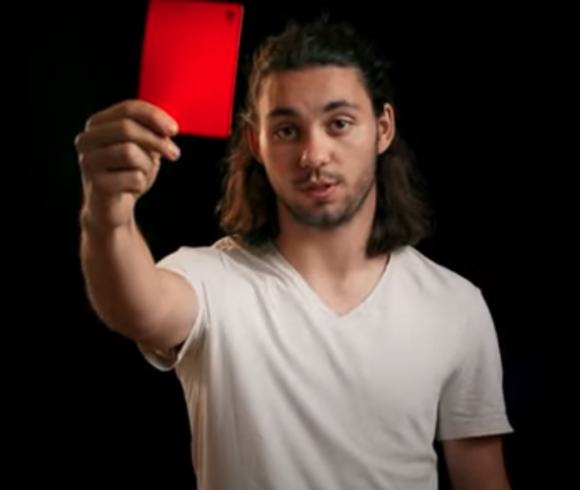Sustainable initiatives that improve the lives of homeless people
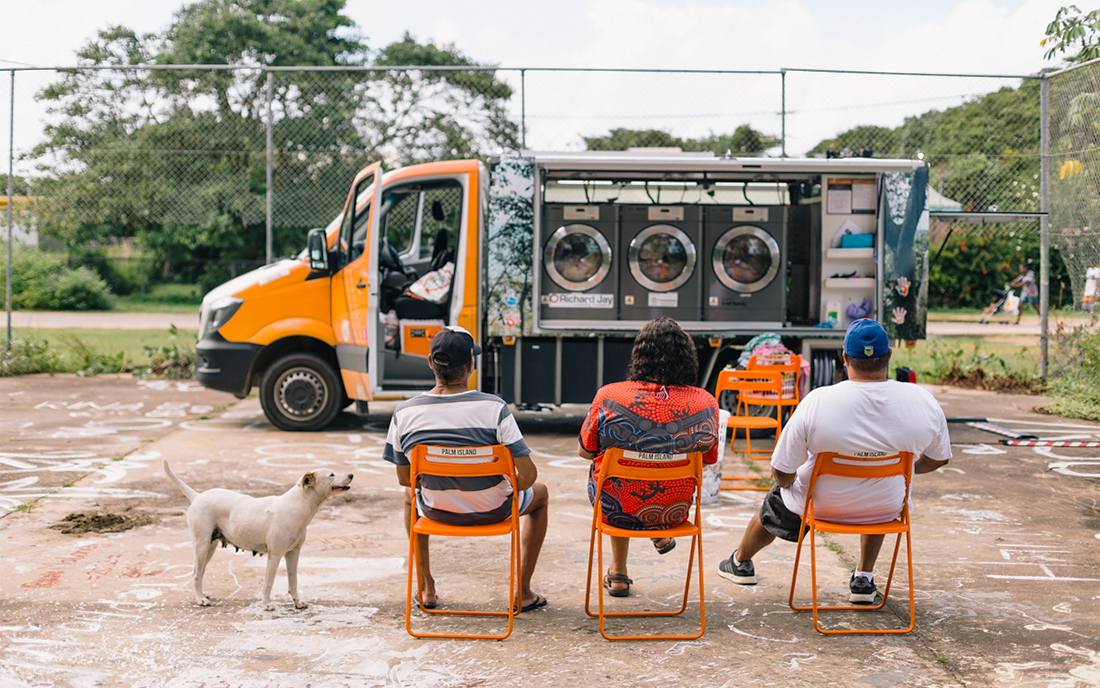
The mobile laundry service for the homeless, Orange Sky from Australia, has inspired many initiatives. It is always about meeting the homeless at eye level and taking their concerns seriously.
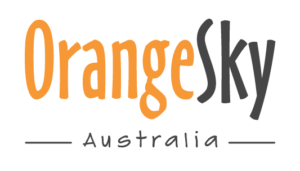
Orange Sky – The Pioneers | Australien
Orange Sky is the world’s first free mobile laundry service for people experiencing homelessness. What makes it special: The volunteers are not social workers or experts – they are empathetic listeners and good interlocutors. This place to sit down for a conversation is the real heart of OrangeSky. This space for informal, unprejudiced conversations appeals to the target group and gets them to use the offer gladly and regularly in the most diverse neighbourhoods.
Encounters at eye level
It all started with the crazy idea of packing two washing machines into an old van and offering a free laundry service for the homeless. The two 20-year-old friends, Nic Marchesi and Lucas Patchett, wanted to improve hygiene standards for homeless people in Brisbane’s parks and give people back their dignity. Clean clothes make us all feel better – from this simple fact, a world first was born in the garage in 2014: Orange Sky. But the original idea has evolved into something much bigger. Because the real impact comes from the orange chairs that – as a trademark – are always placed next to the bus: the importance of sincere, unprejudiced conversations.
Meanwhile, the hybrid vehicles also offer shower facilities. Orange Sky has also installed purpose-built vehicles with two washing machines and three dryers in a former defense truck to serve local communities in rural areas. While access to washing and showering facilities is important, it is the conversations and regular contact that make the biggest impact in the community, the young founders quickly realized. Each week, volunteers across Australia help to positively impact ‘friends’ who are struggling by providing access to free laundry, hot showers and honest, non-judgmental conversations. Always working with service providers such as food carts or drop-in centres to ensure that people are settled in places where the target group feels comfortable. The focus is on creating a safe, positive and supportive environment for people who are too often ignored or feel excluded from society. Orange Sky’s mission is to positively connect communities. Homelessness affects 1 in 200 people in Australia. Most of us don’t know what it’s like to spend a night on the streets, but almost all of us can relate to what it’s like to be strapped for cash at one point. Those who are homeless and have only a few belongings and whose money is just enough to ensure daily survival have other worries than clean clothes. Who would actually spend money on washing and drying clothes in this situation? No one. And that is where the concept successfully comes in.
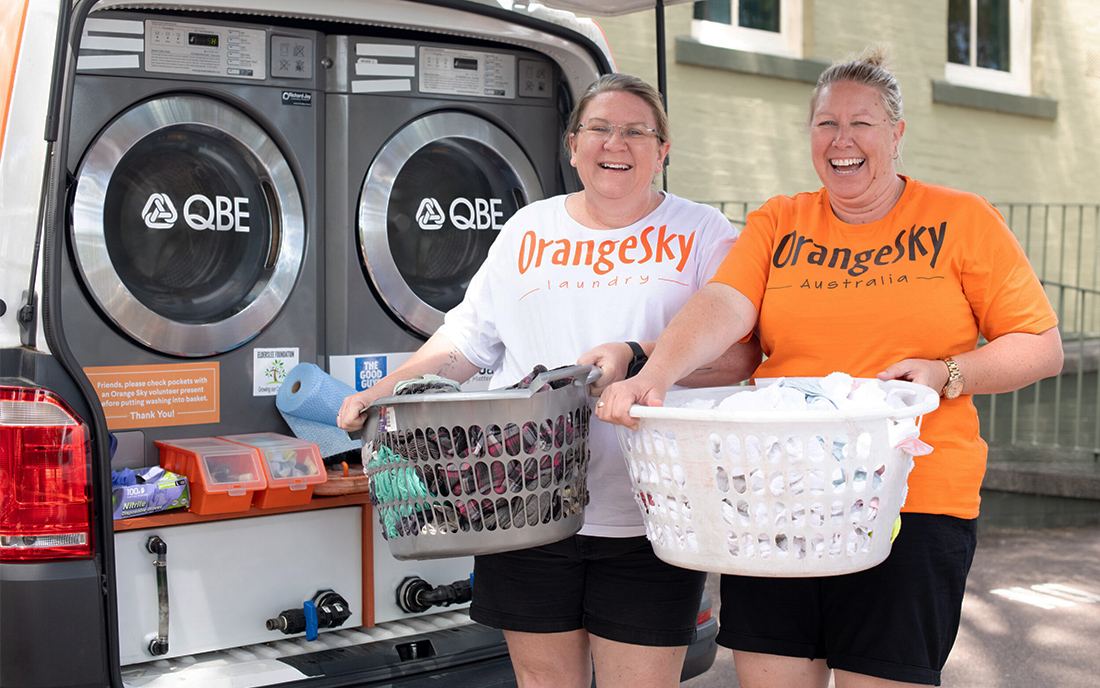
Orange Sky now operates over 33 laundry and shower services across Australia and New Zealand, providing over 260 shifts each week in every state and territory with the help of almost 2,000 volunteers. Since 2014, Orange Sky has provided people on the street with more than 1,900,000kg of free laundry, over 17,500 hot showers and nearly 300,000 hours of unconstrained conversation. Orange Sky also provides support elsewhere. Following the major floods on Australia’s east coast in the spring of 2022, Orange Sky’s mobile teams quickly adapted their routes and delivered aid to flood zones. Orange Sky has also invested $1 million from the Google Impact Challenge in improving software technology to integrate the entire sector with over 3,000 service providers. If they scale the technology, it can make a big difference to mobile counselling services.
Initiatives from Germany
In Germany, too, there are already initiatives that provide help to socially disadvantaged people without a permanent place of residence. For example, cold buses are now on the road in many German cities.
There are also first initiatives that take up the idea of Orange Sky and implement the pioneering model from Australia in a similar form in Germany. The focus is usually on the cleanliness of people and clothes, which is of central importance for life on the streets and can literally open doors. Interpersonal encounters and personal conversations play an important role, but are not as central as in the established model from Down Under. In addition, there are offers, also from social agencies, which come to the people, i.e. pick them up where they live, as help is otherwise often difficult or not taken up at all.
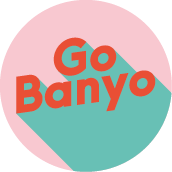
GoBanyo | Hamburg
People on the street have a need for hygiene like everyone else. Public showers are rare, cost money and are often not easy to reach.The bestselling author Dominik Bloh was homeless himself for years and knows the hardships and worries of people without a fixed abode. GoBanyo started as a social StartUp and was founded as a non-profit limited liability company after a successful crowdfunding with partners from the economy. At the end of 2019, a converted bus could be launched in Hamburg as a mobile solution to this problem. The GoBanyo shower bus makes regular stops at various locations to be accessible to as many people as possible. The use is free of charge, the guests get clean laundry and care products – in privacy. The goal is to accompany homeless people to the next step. Because if you feel dirty, you avoid contact with other people. GoBanyo has not only developed into a project for dignified washing and the associated health care, but also into a hub for social contacts and a place to go to prepare for visits to the authorities, flat viewings or doctors. This is because homeless people often do not attend these out of shame. After each use, the bathrooms are cleaned by volunteers.

Mowabu | Duisburg
Mowabu stands for the first mobile washing bus for homeless and socially disadvantaged people in North Rhine-Westphalia. Inspired by a report about OrangeSky, founder Malte Petry wanted to help on site himself to improve their living conditions. For him, everyone should have the right to wash, care for and own clean clothes. Unfortunately, not all people have the chance to do so. With the mobile washing bus, he and his two partners want to offer needy people the opportunity to wash their clothes free of charge – and to have an open ear for their concerns or simply to have a short appreciative conversation. The bus is equipped with a washing machine, a dryer and donations of clothes. It goes to places where it is needed and where people need to be able to wash, dry and exchange their clothes and belongings. Started in Duisburg, the bus will travel to many cities in the future. Depending on the season, the offer will also be expanded to include, for example, a warm soup.
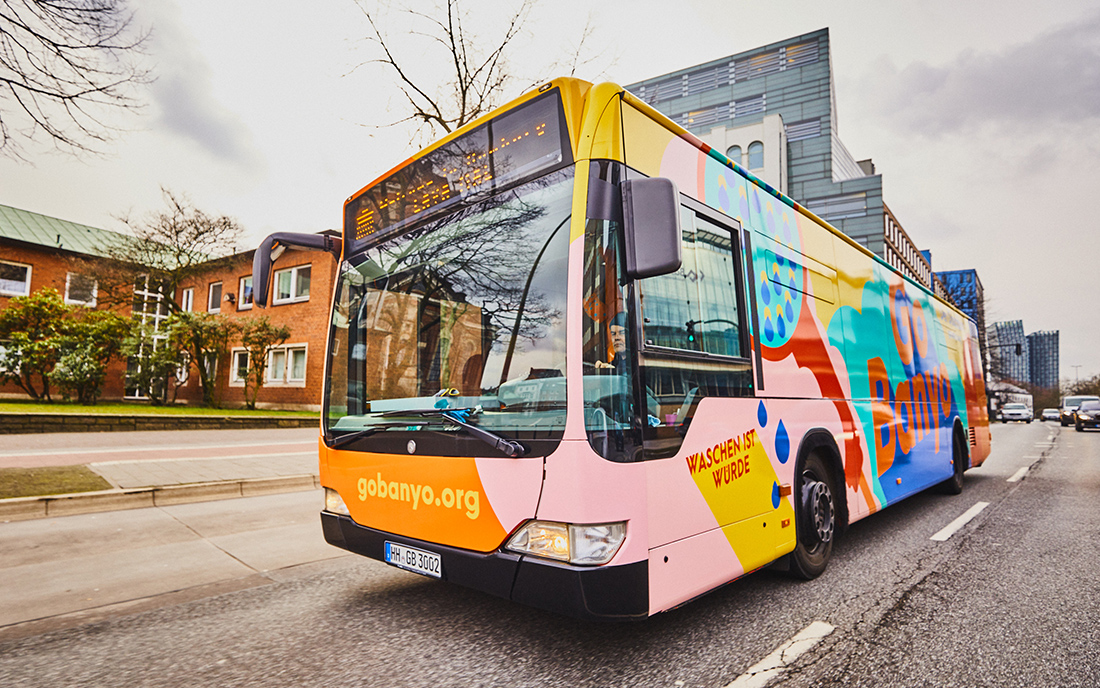

The Caritas “Arztmobil” | Berlin
Life on the street makes you sick. But many homeless people do not go to a doctor’s office because they are ashamed. Illnesses are thus unnecessarily delayed. Our health system is not geared to these people. There is a lack of low-threshold services for people living on the streets. In Berlin, the Arztmobil goes to them. Wherever the Arztmobil is, a long queue quickly forms. For more than 7,000 homeless people in Berlin and the surrounding area, the consultation hours on the street are the only opportunity for medical help. The team offers basic medical care and counselling. In this way, questions can be discussed and illnesses detected at an early stage. Almost 1800 treatments are carried out per year.
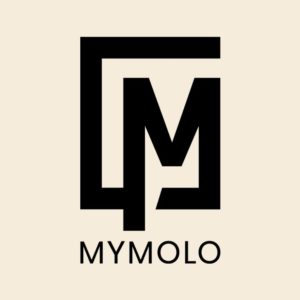
My Molo
The start-up My Molo offers mobile pop-up hotels for festivals. Such lodges are aimed at festival visitors in need of comfort. Since these accommodations are rarely needed in winter, the founders have been involved in the Berlin Cold Aid since 2016. Their heartfelt project is to offer homeless people a place to sleep for the winter, whose situation has become even worse during the Corona crisis. My Molo provides the lodges for a low, symbolic rent. In this way, the homeless – financed by donations – can not only get a roof over their heads, but above all security, a sense of home and a dignified place to spend the night with privacy. Because a structured everyday life can be a first step away from the street.
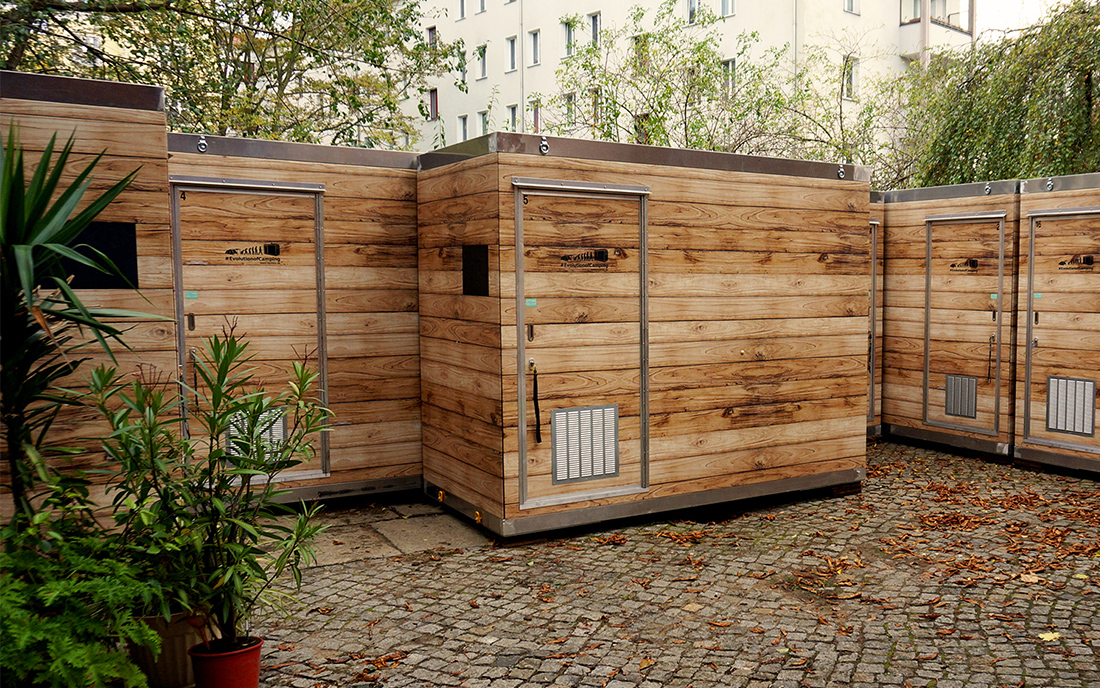
By the way, the following applies to all examples: imitation and participation are encouraged!
Questions, criticism, suggestions? Write to us!
Dr. Andreas Renner, Co-Founder GOOD: andreas@good-search.org
